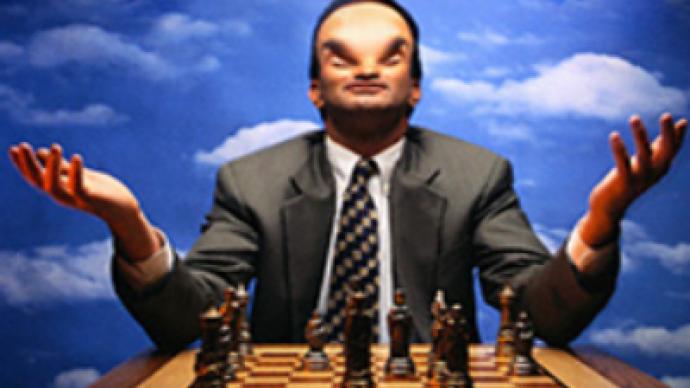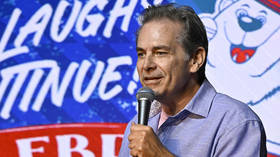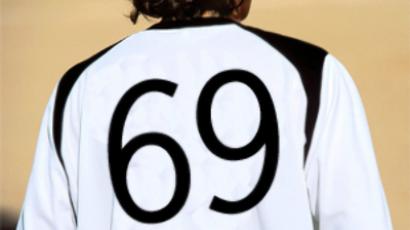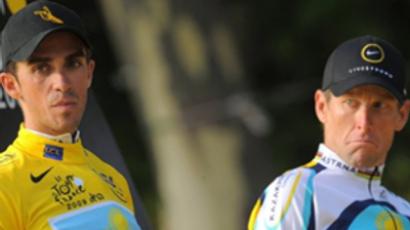Sports doping scandal... in chess!

The normally sedate world of chess was rocked last month with a doping scandal that is likely to hamper the game’s chances of becoming an Olympic sport.
Ukrainian Grandmaster Vassily Ivanchuk refused to submit a urine sample for a random drug test following his defeat at the Chess Olympiad in Dresden, Germany and is now considered guilty of doping. The professional player and Grandmaster of over 20 years now faces a two-year ban from the sport.
The charge levelled at Ivanchuk has caused outrage in the chess world. Other players say that accusing one of them of doping is an insult to their honour and intelligence and that the very idea that cheating at chess through doping is impossible.
Ivanchuk, known as 'Big Chunky' by his fellow players, is certainly one of the sport’s most-colourful characters. His playing style, just like his life, is unpredictable and his erratic behaviour has brought some equally-erratic results in the past. He enjoys the reputation of someone who is capable of beating the best and producing moments of brilliance. But he also has a darker side. He has, on numerous occasions, lost his nerve at the crucial moment, leading to some odd and unpredictable blowouts. It is one such moment that seems to have felled the leading player at the Dresden event.
Frederic Friedel is the co-founder of the chess database company Chessbase. He has known Vassily for 15 years and was present as the ‘Dresden Doping Saga’. He says, “Vassily is one of the greatest geniuses in chess but also a little eccentric – in a very nice and very mild-mannered way. He is a little crazy – he goes out in the cold in shorts and he suffers intensely when he loses.”
Ivanchuk’s latest blowout happened as Ukraine were set to take a team gold medal at the Dresden Olympiad – all Vassily had to do was defeat Russia’s Gata Kamsky and victory was secured. Even a draw would have meant silver. It was a gripping finale. “It was unbelievable,” says Friedel, “Vassily was unexpectedly defeated and it meant Ukraine got nothing, not even bronze. This was completely impossible to anticipate. It was the biggest shock possible.”
The defeat hit Ivanchuk hard and his questionable temperament was again in the spotlight. AS Frederic Friedel explains, “I've seen (Vassily) lose less important games, where he would run out and howl at the moon but in Dresden, he came out and started kicking a pillar and bashing his fists on a table in sheer anguish. Then some people, who he has never met before, came up to him and essentially said 'come to the toilets and pee for us'. He didn't understand what was happening and he just fled.”
Unfortunately for Ivanchuk, the failure to produce the urine sample is automatically treated as a positive test result. He is now considered guilty of doping and could be barred from professional chess for two years. It also throws the World Chess Federation’s bid to bring the game under the Olympic banner into doubt. Already facing a slim chance of acceptance into the games, the drug testing measures were brought in to appease the Olympic Committee. But that plan is now backfiring in spectacular fashion.
There is no issue of drug or doping in chess and yet their Olympic bid could be scuppered by the failure to secure a drugs test. Vassily himself maintains complete innocence. He wrote to Friedel following the incident, “I have never taken anything in my life, apart from coffee…I took vitamins many years ago – I hope that’s not dangerous.”
The whole farce has hit chess hard and leaves its governing body in a quagmire. “It’s an unmitigated disaster,” laments Friedel, “The Federation are in a quandary, they have to punish Vassily otherwise the Olympic Committee won’t take them seriously. But if they do punish him, and if the number 2 or 3 player and most-interesting personalities in the game are banned for 2 years, then people will turn away from the federation in protest.”
But is cheating in Chess possible? “Absolutely,” claims Friedel, “but there are no drugs involved. There is something you should be testing for in chess and that is computer assistance. It’s a very serious problem and it’s easy to do. The best chess computer programs regularly defeat human opponents with ease. If I am going to cheat in chess I'm not going to take drugs, I would not even know what to take; instead I’d have someone transmitting moves to me using computers. It has occurred already a couple of times.”
Vassily’s future is uncertain at the moment. His flash of emotion could cost him two years out of his profession and the debate will continue as to whether chess should be described as a sport or indeed an Olympic endeavour. However after the Dresden debacle, it’s fair to say that the drama and intrigue of the board game are of Olympic calibre.
Ciaran Walsh for RT













